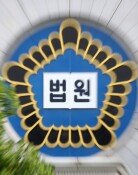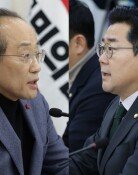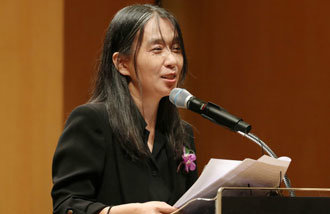Democratic Party tricks to pass prosecution reform bills
Democratic Party tricks to pass prosecution reform bills
Posted April. 22, 2022 07:38,
Updated April. 22, 2022 07:38
The Democratic Party’s maneuver to ram through a prosecution reform bill to completely deprive the prosecutors’ office of its investigative powers within April has backfired. Concerns and criticisms are mounting, even within the ruling party, around “disguised defection” of its member Min Hyung-bae, calling such a move as contempt for democratic principles. Despite rising calls for self-inspection, the DP leadership has been maintaining a make-it or break-it attitude all the way through like a runaway train.
The Democratic Party’s absurdity culminated with Rep. Min’s disguised defection. When the attempt to draw the Justice Party into its scheme fell through, the Democratic Party made Rep. Yang Hyang-ja, who had voluntarily left the Democratic Party due to her staff’s involvement in sex crime and voiced reluctance to the bill due to her conscience, resign from a sub-panel of the Legislation and Judiciary Committee, albeit the party’s promise to reinstate Yang back. This is a blunt expedient intended for incapacitation of the Panel of Agenda Coordination in the Legislation and Judiciary Committee.
The agenda coordination panel was introduced in May 2012, when the National Assembly Act was amended. It plays a role of preventing a majority party from unilaterally passing a bill to the standing committee. The longest term of activities shall be 90 days from the date of its constitution; yet when two thirds of its members (four people) agree, an agenda may be instantaneously processed. This constitutes one of the essential matters constituting the National Assembly Advancement Act, the gist of which is that members of the National Assembly must go through careful consideration. The trickery the Democratic Party has employed is the manifestation of deterioration, not advancement, of the National Assembly.
The Democratic Party rushes to process the bill within the term of the current administration, thinking that President-elect Yoon will definitely veto the bill once he takes office. Rep. Yang said that some 20 people under the Moon administration may go to prison if the prosecution reform bill is not processed. The Democratic Party’s ulterior motive behind the pretext of prosecution reform, as Rep. Hwang Woon-ha puts it, is to eliminate the prosecution’s investigative powers in six fields of serious crimes and to dodge legal responsibility for a number of the cases of suspicion involving prominent figures of the incumbent administration, including the Daejangdong scandal and the presidential office’s alleged intervention in Ulsan mayor election.
Criticisms are pouring in on the controversial prosecution reform bill, which is allegedly unconstitutional, only a year later since the adjustment of the prosecutorial and police powers. Such criticism is like praying to deaf ears to the Democratic Party. It must regain its reason and embark on negotiation with the opposition parties and the prosecutors’ office. President Moon seems to be withdrawn from the matter, and National Assembly Speaker Park Byeong-seug is holding the key. Park must take a firm stance on disguised defection of Rep. Min by forcibly vacating him from the Legislation and Judiciary Committee. Whatever conclusion is reached by the committee, the prosecution reform bill must not be referred to a plenary session. It is not too long ago since the nation was embroiled by a controversy over satellite parties. The disguised defection must be dealt with appropriately. The National Assembly must not be a mockery to the people.
Headline News
- Companies race to build key connections with the Trump administration
- Trump's key figure advises against overinterpretation of Pyongyang’s actions
- OECD lowers Korea's 2025 potential growth below 2%
- Supreme Court confirms compensation for May 18 Gwangju movement victims
- Kim Sang-kyum wins first World Cup medal in Alpine snowboarding







